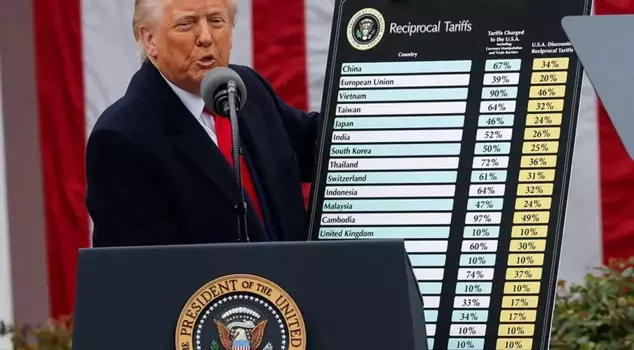
29.05.2025 08:21
The U.S. International Trade Court ruled that President Donald Trump exceeded his legal authority with the tariffs imposed on other countries, and decided to block the implementation of these tariffs. The Trump administration has appealed the decision and initiated a legal battle.
```html
The court has announced its decision in a lawsuit filed against the government by some private companies and states regarding the tariffs imposed by President Trump on goods imported from other countries.
The Federal International Trade Court in the country ruled that President Trump "exceeded his authority" by implementing comprehensive tariffs globally and requested the "suspension of the tariffs." The ruling stated that tariffs based on reciprocity exceeded the authority granted to the President under the International Emergency Economic Powers Act (IEEPA) to regulate imports through tariffs.
"IT WILL BE PERMANENTLY BLOCKED"
The ruling indicated that the Constitution grants the authority to regulate commerce and impose taxes solely to Congress, and it was reported that the contested tariff decisions would be annulled and their implementation would be permanently blocked.
TRUMP ADMINISTRATION'S APPEAL
The Trump administration has appealed the decision, and it is stated that the Washington administration will go to court.
White House spokesperson Kush Desai stated, "The non-reciprocal treatment of foreign countries towards the U.S. has fueled persistent trade deficits. These deficits have brought about a national emergency that leaves our workers behind and weakens our industrial base. The court did not discuss these facts."
WHAT WILL HAPPEN NOW?
The court's decision and the Trump administration's appeal have initiated a legal battle. Experts note, "There is a need for more details on whether this is a precautionary measure, whether it has gone to the appeals process, and whether the tariffs remain in effect for now. Currently, there is uncertainty regarding these issues."
WHAT HAPPENED?
While tariffs must be approved by Congress in the U.S., President Trump claimed he had the authority to act to address trade deficits, which he referred to as a "national emergency," and imposed tariffs on most countries in the world on April 2.
Subsequently, the U.S. administration, which made a "90-day postponement decision," reached an agreement with China during this period, and initially, tariffs exceeding 100% were mutually reduced.
Finally, Trump mentioned a 50% tariff for the EU and pointed to July 9. The EU side, in this regard, decided to "start negotiations."
```